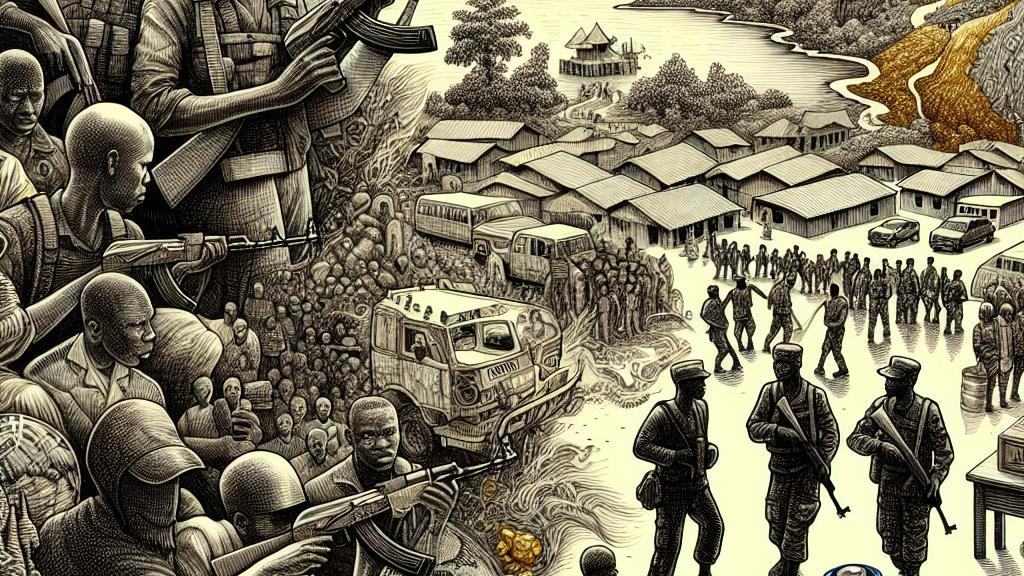Understanding the M23 Rebels and the Situation in DR Congo
Overview
- M23 rebels have recently taken control of important towns in the mineral-rich Democratic Republic of Congo (DRC), stirring significant concern.
- The conflict intricately connects ethnic tensions, historical grievances, and fierce competition for valuable resources.
- A severe humanitarian crisis is intensifying as violence disrupts daily life and displaces countless families.

The Rise of M23 Rebels
The M23 rebels, frequently backed by Rwandan forces, have made headlines with their swift capture of strategic areas in eastern DRC, most notably the town of Masisi. This group emerged from previous conflicts, asserting they aim to protect ethnic Tutsis from persecution. However, a deeper examination reveals a more troubling motive: the pursuit of control over lucrative natural resources. For instance, consider the endless demand for gold and cobalt, vital ingredients for the technology we rely on, from smartphones to electric car batteries. As the M23 solidifies its power, the pervasive threat of economic exploitation looms ominously, raising critical questions about who truly benefits from the riches of this region.
Humanitarian Crisis Emerges
Each victory for the M23 brings with it a deeper humanitarian crisis, and the consequences are staggering. Hundreds of thousands of individuals have been forced to flee their homes, leading to an unfolding narrative of despair and displacement. Local leaders, including North Kivu's Alexis Bahunga, have sounded the alarm, warning that the situation may devolve into a catastrophic humanitarian disaster. Imagine entire families enduring the heart-wrenching experience of leaving behind their lives, driven by fear and the pursuit of safety. Eyewitness accounts tell stories of local residents attending M23 meetings where claims of 'liberation' sharply contrast with the dreadful realities of violence and chaos that have taken root in their once-stable communities.
International Responses and Future Implications
Attempts at mediation on the international stage, including efforts led by Angola, have consistently struggled to make a meaningful impact, leaving vulnerable communities exposed to escalating violence. To combat this, the DRC government has initiated legal action against major corporations like Apple, confronting them over their use of 'blood minerals' that contribute to the ongoing conflict. Critics argue that Rwanda’s association with the M23 serves dual purposes: seeking to reclaim mineral wealth while perpetuating local suffering. The need for the international community's intervention is urgent; without it, human rights abuses could escalate further, escalating the cycle of violence. The stakes have never been higher, and as global entities consider their responses, the future of countless lives hangs precariously in the balance.

Loading...